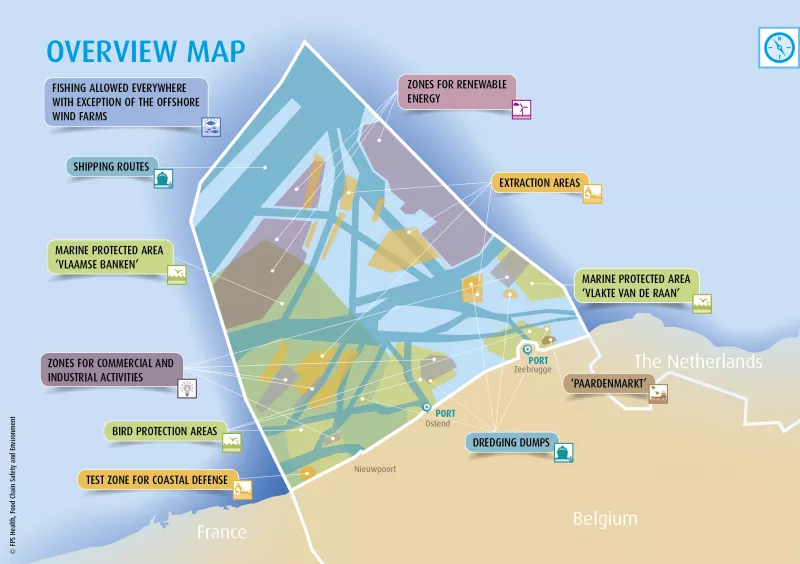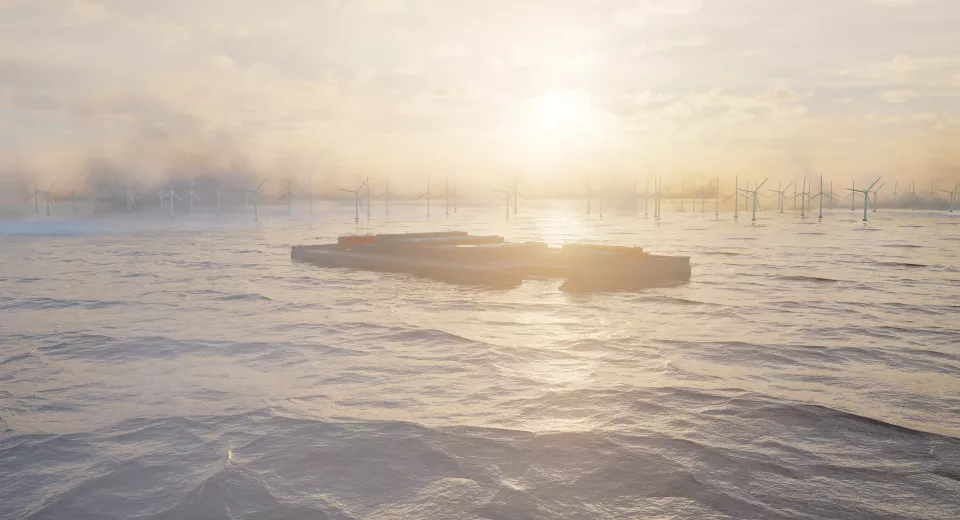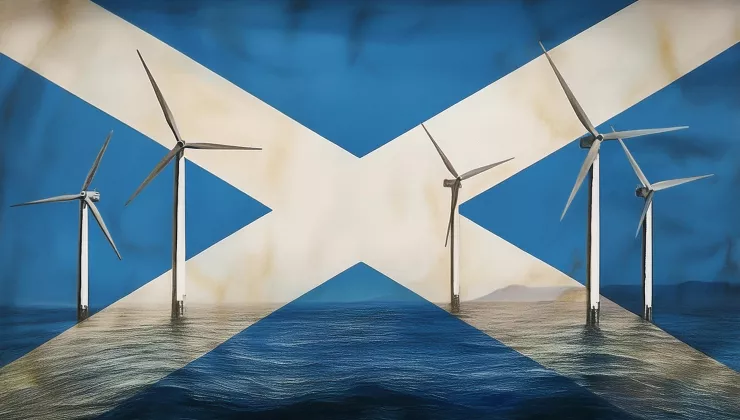Clear links to the North Sea in new federal coalition agreement
At the end of January, Blue Cluster organised a debate on the new marine spatial plan (MSP) for the Belgian part of the North Sea. More than 100 participants from industry, knowledge institutions, governments and other stakeholders took part and emphasised the importance of more space for innovation and sustainable economic activities in the new MSP.
Less than a week later, a new federal government was installed. The new federal coalition agreement for 2025-2029 contains many measures and policies related to the future of the Belgian part of the North Sea. A number of highlights are discussed in more detail below.
New Marine Spatial Plan
With the new Marine Spatial Plan (2026-2034), the federal government strives for a balance between the various economic activities (transport, energy, sea fishing, etc.) and biodiversity. The document explicitly makes reference to sufficient space for innovation. In addition, more attention will be paid to the proper zoning of economic activities.
In order to safeguard the future development of aquaculture and fishing, the new government is looking at developing zones for commercial and industrial activities (so-called CIA zones). In this way, multiple functions (energy, monitoring, safety, aquaculture) could be brought together at one location.

Offshore wind & interconnection
The coalition agreement emphasises the European and international commitments in the field of energy and climate. In order to ensure security of supply and to make the climate transition a success, action will be taken to significantly increase the electricity supply. Within this context, significant investments will be made in additional capacity in the coming years to continue to cover the demand for electricity. Energy sources will also be diversified and production of electricity in Belgium will be increased.
Offshore energy is recognised in the coalition agreement as an important part of the energy mix. The agreements made regarding the Princess Elisabeth Zone will be implemented, and the results of the tender for lot 1 will be evaluated. The conditions for lots 2 and 3 will be adjusted if market reactions show that this can lead to better results.

The term for the construction of the new wind farms will be increased to 5 years. In addition, it will be analysed whether certain parameters have increased the cost compared to neighbouring countries. A policy framework will also be developed to replace older wind turbines in the existing offshore zone with newer, more efficient ones.
The coalition agreement also points out the importance of connecting the Belgian electricity network to the networks of other countries to enable the transport of electricity between countries (interconnection). In this context, the government will focus on cooperation with the North Sea countries to create a common network in the North Sea.
Maritime security
The De Wever government is going to invest significantly more in defence. The intention is to increase the budget for defence to 2% of the gross domestic product (GDP) by 2029. By 2034, this should be 2.5%. A strategy will be drawn up against foreign interference, with a focus on protecting critical infrastructure at sea.
Cooperation with the economic and academic world will be essential in this respect. For example, a cooperation agreement will be concluded on the security and defence industry and innovation with the federal states that show interest in contributing financially to (innovation) projects. The cooperation agreement on the coastguard will also be updated.
In addition, further investments will be made in improving the security of logistics hubs (such as our ports) via a multidisciplinary security plan. Belgium will also combat international organised crime at sea by focusing on the global implementation, monitoring and enforcement of the International Ship and Port Facility Security Code.

Shipping
Another major topic in the new coalition agreement is shipping. For example, the new government will take international action to establish uniform rules on taxation and carbon for global maritime shipping.
The tonnage tax system, which allows local shipping companies to be taxed on their tonnage instead of the normal corporate tax, will be simplified and extended to innovative companies with local economic interests in maritime transport.
The focus is also on greening the Belgian maritime fleet by creating a level playing field for bareboat chartering (renting ships without crew). In addition, a legal framework for autonomous vessels and vehicles will be developed in consultation with the regions.
At the international level, Belgium will make efforts to ensure that all ships have an automatic identification system (AIS).
Innovation testing
The federal government wants to develop regulatory-free test zones where it is possible to experiment with new technologies and economic activities in a clear and legally certain environment. These zones allow exceptions to certain legislation or offer opportunities to check existing legislation for new technologies or products.
The federal government will have consultations with the regional authorities to set up collaboration schemes within their respective areas of competence.
Blue Cluster is pleased that the blue economy is extensively addressed in the new federal government agreement and wishes the new federal government every success. We look forward to entering into dialogue for the further elaboration of these policy ambitions.


